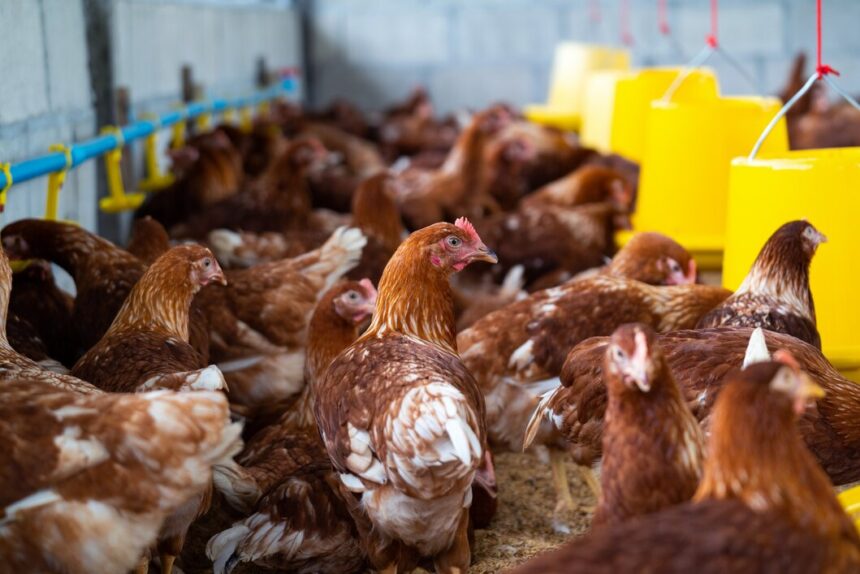Poultry farming is a key contributor to food security in South Africa, providing a reliable source of income and nutrition for many families. Raising healthy chickens is essential for a successful poultry farming venture, whether it’s for egg production, meat, or both. Here are some crucial tips to help South African farmers maintain healthy, productive flocks.
1. Choose the Right Breed
Selecting the right breed is the first step to raising healthy chickens. Different breeds are suited for various purposes—some are better for egg production, while others are ideal for meat. For example, Rhode Island Reds are known for their egg-laying capacity, while Cornish Cross chickens are commonly used for meat production. Research breeds that are well-suited to your farming goals and the local climate.
2. Provide Adequate Housing
A well-designed chicken coop is essential for maintaining the health of your chickens. The coop should protect them from extreme weather, predators, and provide enough space to move around. A good rule of thumb is to provide at least 1 square meter of space per bird inside the coop, along with outdoor space for free-ranging, which helps reduce stress and promotes healthy growth.
3. Maintain Proper Ventilation
Good ventilation in the chicken coop is crucial for preventing respiratory diseases, which are common in poultry. A well-ventilated coop allows fresh air to circulate, reducing the buildup of ammonia from chicken droppings. Make sure the coop has openings near the roof that allow airflow without creating drafts, especially during cold months.
4. Provide Clean Water and Quality Feed
Access to clean, fresh water is vital for your chickens’ health. Water helps with digestion, temperature regulation, and overall well-being. Ensure that water containers are cleaned regularly to avoid contamination.
Feeding your chickens with a balanced diet is also important. Commercial poultry feed is often the easiest way to ensure your chickens get the necessary nutrients, but you can supplement with grains, vegetables, and kitchen scraps to promote growth and egg production. Make sure that the feed contains the right balance of proteins, vitamins, and minerals for the age and purpose of your birds.
5. Implement Biosecurity Measures
Biosecurity refers to practices that help prevent the introduction and spread of diseases in your flock. Some basic biosecurity measures include:
- Limiting access to your farm, especially from outsiders who may carry diseases.
- Disinfecting equipment and boots before entering and after leaving the chicken coop.
- Quarantining new birds for at least two weeks before introducing them to your flock to prevent the spread of disease.
6. Vaccinate and Deworm Regularly
Vaccination is essential to protect your chickens from common diseases such as Newcastle Disease and Infectious Bursal Disease (IBD). Consult with a local vet or poultry specialist to determine the right vaccination schedule for your flock. In addition, regular deworming can help prevent internal parasites, which can affect growth and egg production.
7. Control Pests and Predators
Predators such as hawks, snakes, and wild dogs are a constant threat to free-range chickens. Secure your chicken coop with proper fencing and consider using guard dogs or secure netting to keep predators at bay. Pests like mites and lice can also harm chickens by causing stress and reducing egg production. Regularly inspect your chickens for signs of infestations and use natural or chemical treatments as needed.
8. Maintain a Clean Environment
A clean living environment is key to keeping your chickens healthy. Regularly clean the coop, replacing bedding (such as straw or wood shavings) to reduce the risk of disease. Dispose of droppings properly to avoid contamination, and keep the coop dry to prevent the spread of bacteria and mold.
9. Monitor for Signs of Illness
Early detection of illness can prevent the spread of disease in your flock. Common signs of illness in chickens include:
- Lethargy or reduced activity
- Decreased appetite
- Coughing or sneezing
- Changes in egg production or egg quality
- Diarrhea or unusual droppings
If you notice any of these symptoms, isolate the affected chicken and consult a veterinarian for advice on treatment.
10. Practice Proper Waste Management
Chicken waste can be a valuable resource for farming if managed properly. Poultry droppings are high in nitrogen and can be used as compost or natural fertilizer for crops. However, waste must be composted correctly to kill harmful pathogens and avoid contaminating soil or water supplies.
Raising healthy chickens requires attention to detail and dedication, but with proper care, poultry farming can be a highly rewarding venture. By following these tips—providing the right housing, nutrition, biosecurity, and disease prevention—South African farmers can ensure their flocks remain healthy and productive. Healthy chickens not only yield better results but also contribute to the sustainability and success of your farm in the long run.
Join 'Farmers Mag' WhatsApp Channel
Get the latest Farming news and tips delivered straight to your WhatsApp
CLICK HERE TO JOIN






